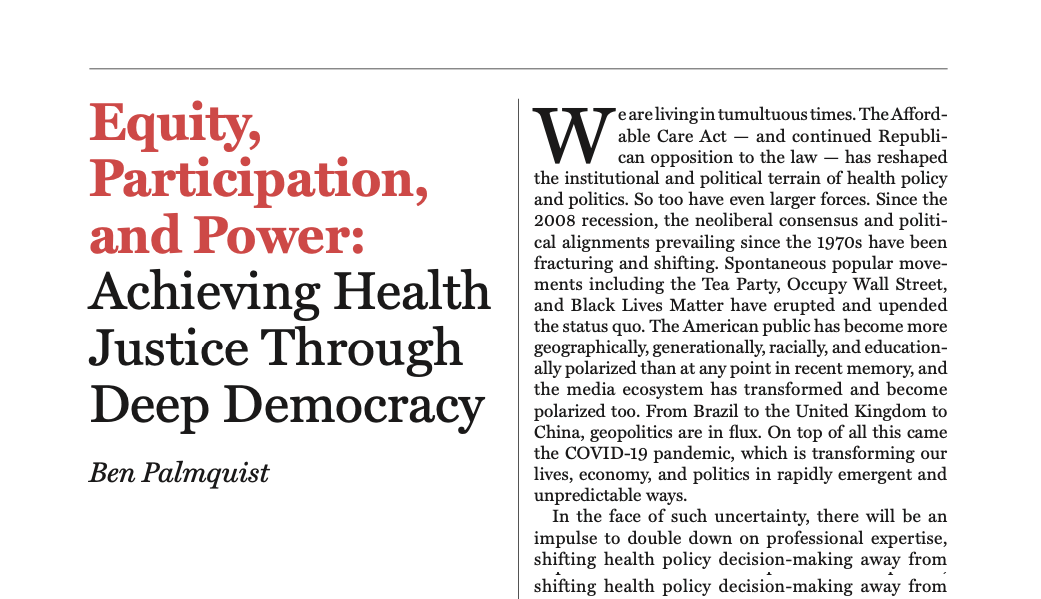Equity, Participation, and Power: Achieving Health Justice Through Deep Democracy

The article is scheduled for publication in the Journal of Law, Medicine & Ethics, a leading peer-reviewed journal for research at the intersection of law, health policy, ethics, and medicine. It draws from health justice movements—particularly our work with Put People First! Pennsylvania, Southern Maine Workers’ Center, and Vermont Workers’ Center—as well as efforts in participatory democracy, public health, legal scholarship, and social sciences. The paper proposes a framework and legal mechanisms that hold potential to advance equity, justice, and democracy across the sprawling American health care system. This is an early and inevitably imperfect attempt to bridge movement organizing with multidisciplinary scholarship, so we any questions or feedback.
Abstract: This article explores how health governance has evolved into an enormously complicated—and inequitable and exclusionary—system of privatized, fragmented bureaucracy, and argues for addressing these deficiencies and promoting health justice by radically deepening democratic participation to rebalance decision-making power. It presents a framework for promoting four primary outcomes from health governance: universality, equity, democratic control, and accountability, which together define health justice through deep democracy. It highlights five mechanisms that hold potential to bring this empowered participatory mode of governance into health policy: participatory needs assessments, participatory human rights budgeting, participatory monitoring, public health care advocates, and citizen juries.
Additional Resources
 Palmquist - Equity, Participation and Power
Palmquist - Equity, Participation and Power
